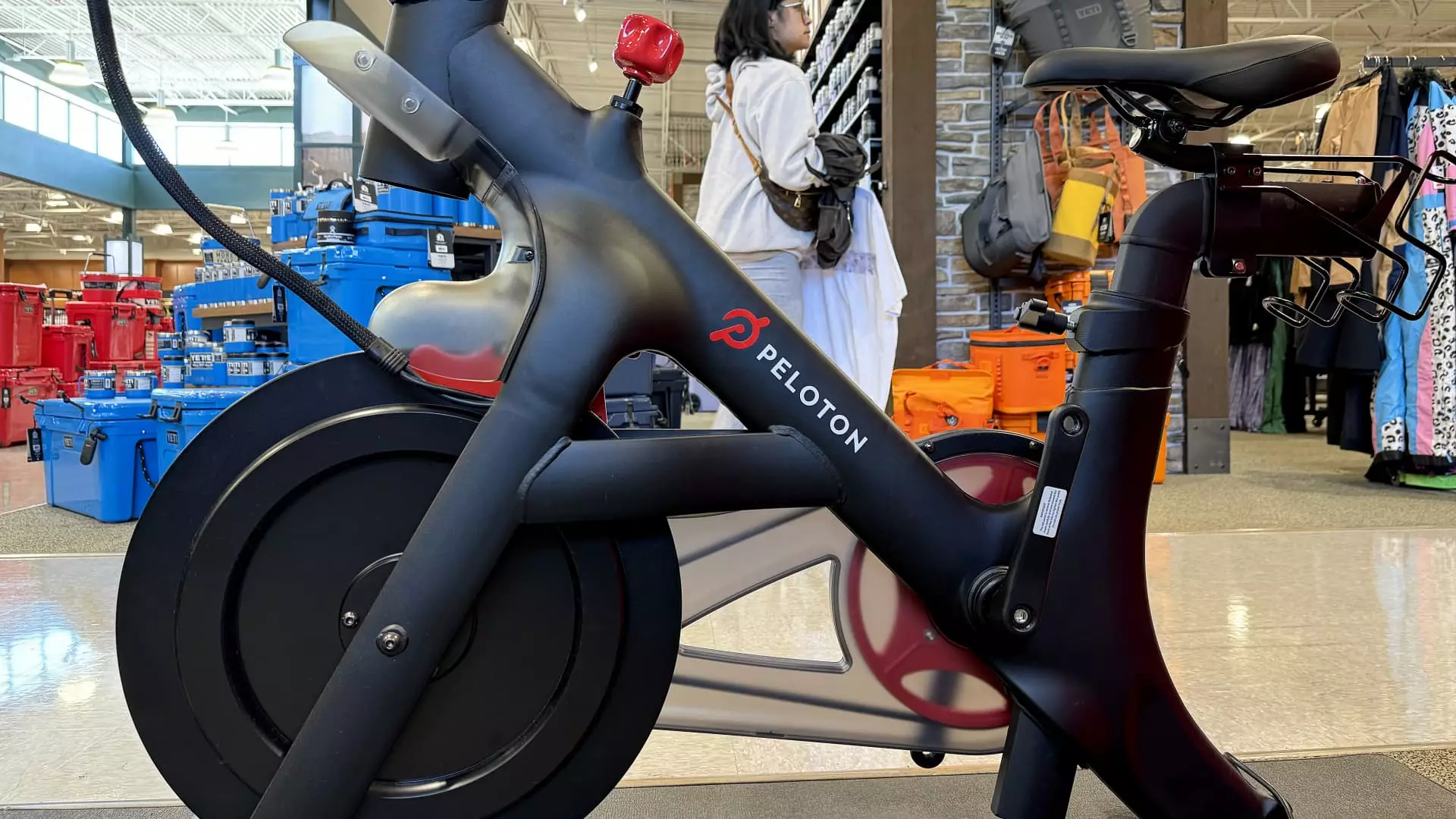In a daring move that reeks of both innovation and desperation, Peloton has stepped into the secondhand market with the launch of its Repowered platform. This new initiative aims to create a marketplace for reselling used exercise equipment and gear, specifically targeting the vibrant community of dedicated Peloton users who may have succumbed to the all-too-common fate of fitness equipment becoming mere decor. While it’s commendable that Peloton is trying to capture the growing demand for secondhand fitness gear, one can’t help but wonder if this effort represents a genuine shift in the company’s strategic vision or simply a band-aid solution for dwindling subscription revenues.
Capitalizing on Dusty Bikes and Treadmills
The timing of Repowered is particularly telling. Given that many Peloton users find their once-cherished bikes gathering dust shortly after purchase, the company’s venture into secondhand sales feels both opportunistic and necessary. According to reports, membership cancellation rates following hardware purchases are alarmingly high. By encouraging users to resell their equipment, Peloton is not only addressing the unfortunate trend of neglected fitness gear but also attempting to tap back into a customer base that has all but abandoned their subscriptions. The use of generative AI to assist sellers in pricing their items is an interesting twist; however, one can’t help but wonder if offering a mere 70% of sales is enticing enough for current users to part with their gear.
The Economic Implications
Peloton’s decision to lower the activation fee for used products shows that the company is keenly aware of the financial barriers that could hinder potential buyers. With the resale market for fitness equipment witnessing exponential growth, they are smart to position themselves in a way that not only benefits the sellers but also attracts new customers. However, one must ponder whether their calculated move will translate into sustained growth or merely patch short-term gaps in revenue. In a landscape where digital platforms for peer-to-peer transactions like Facebook Marketplace are thriving, the introduction of Repowered can either gain traction as a dedicated platform or fade into oblivion as just another underwhelming feature.
Peloton vs. Established Competitors
By opting to create its own resale platform, Peloton directly challenges not just the likes of Facebook Marketplace but also startups focusing on secondhand sales, such as Trade My Stuff. This strategic pivot sends a clear message: Peloton is prepared to reclaim control over its brand and its market narrative. However, is this approach too late? The number of competitors has surged, with many players already establishing their footing within the resale domain. While Peloton’s enthusiastic fanbase might initially embrace Repowered, the question remains whether it can maintain that interest in the long run, especially when faced with entrenched alternatives.
The Risk of Glorified Equipment Racks
Peloton’s latest initiative comes at a time when public sentiment around home fitness equipment is shifting. No longer just cherished investments, many users view their Peloton bikes as glorified clothes racks—a reference to the plethora of neglected exercise machines cluttering homes across America. Peloton needs to address this cultural crisis head-on, moving beyond mere transactional mechanics and instead fostering a robust community that reassures current and prospective customers that their investment remains worthy. For the company to transform its public image from that of a costly luxury to an essential part of a healthier lifestyle, the narrative surrounding fitness should evolve alongside its market strategies.
A Path Forward or a Desperate Gamble?
While Peloton’s foray into the resale market appears to hold potential, it is ultimately a gamble laden with risk. The initiative might breathe new life into a flagging subscription model by promoting equipment mobility and accessibility, but it could also dilute the brand’s appeal if not managed correctly. Peloton’s Repowered could serve as a portal to revitalization—if executed thoughtfully. The challenge will be to ensure that this platform fosters genuine engagement rather than simply scraping the surface of customer retention. As the fitness landscape continues to evolve, Peloton’s next moves will be crucial in determining its future relevance in an ever-competitive market.

